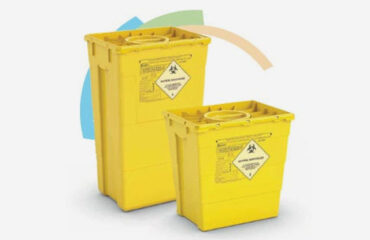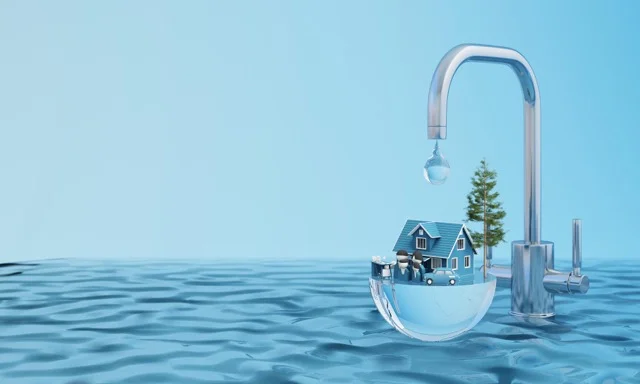Facts About Reclaim Waste Uncovered
Facts About Reclaim Waste Uncovered
Blog Article
Little Known Facts About Reclaim Waste.
Table of ContentsThe smart Trick of Reclaim Waste That Nobody is DiscussingThe smart Trick of Reclaim Waste That Nobody is Talking AboutEverything about Reclaim WasteReclaim Waste - QuestionsReclaim Waste Things To Know Before You Buy
Check out the types, occurrences, and kinds of liquid waste. Domestic sewer waste refers to the waste and items from a household sewage-disposal tank. This sort of waste is created by human beings in residences, institutions, and other structures. This only includes sewage-disposal tanks that have a drain area. The correct administration and disposal of residential sewage waste require fluid waste to be moved to a sewage therapy plant where the appropriate methods and devices are applied to detoxify and get rid of waste.
Industrial waste frequently consists of potential threats, such as combustible materials or a blend of fluid and solid waste products, and needs an advanced and detailed disposal process. The disposal of business waste generally includes the purification of waste before transportation to make sure safe and appropriate disposal. Hazardous waste is developed from byproducts and overflow of industrial procedures and manufacturing.
This kind of waste can not make use of the same sewage administration transportation or procedures as septic or business fluids. The hazardous waste management process requires the assessment and screening of fluid waste prior to it undertakes the disposal procedure (liquid waste disposal melbourne). Overflow waste is the fluid waste that originates from drainage and excess stormwater in very populated areas or cities
Overflow waste can trigger contamination and flooding if not dealt with correctly. Ensuring correct waste monitoring can stop catastrophes and decrease ecological damage.
Reclaim Waste Can Be Fun For Everyone
Call PROS Solutions today to learn more about our waste monitoring and disposal services and the correct methods to look after the liquid waste you generate.
(https://blogfreely.net/reclaimwaste1/yc311a58b1)This so-called 'wastewater' is not just a vital source yet, after treatment, will be launched to our land, rivers or the ocean. Utilized water from toilets, showers, bathrooms, kitchen sinks, laundries and industrial procedures is known as wastewater.

water utilized to cool equipment or clean plant and tools). Stormwater, a type of wastewater, is overflow that flows from farming and city areas such as roofs, parks, yards, roadways, paths and rain gutters into stormwater drains, after rainfall. Stormwater flows without treatment straight to local creeks or rivers, ultimately reaching the ocean.
The Basic Principles Of Reclaim Waste
In Queensland, many wastewater is dealt with at sewage therapy plants. Wastewater is moved from domestic or commercial sites via a system of sewage systems and pump stations, called sewage reticulation, to a sewer therapy plant. Local federal governments build, preserve and run most sewer treatment plants. Operators are certified under the Environmental Management Act 1994 to release treated wastewater at an acceptable environmental criterion into waterways.
The Division of Natural Resources recommends local governments regarding handling, operating and keeping sewerage systems and therapy plants. In unsewered locations, city governments may need owners to install specific or family sewer therapy systems to deal with residential wastewater from bathrooms, cooking areas, shower rooms and laundries. The Division of Natural Resources authorizes using household systems when they are confirmed to be efficient.
Most stormwater receives no treatment. In some brand-new neighborhoods, treatment of some stormwater to get rid of trash, sand and gravel has actually begun making use of gross contaminant catches. Wastewater treatment takes place in 4 phases: Eliminates strong matter. Bigger solids, such as plastics and various other items incorrectly released to sewage systems, are eliminated when wastewater is travelled through screens.
Wastewater after that streams right into large containers where solids resolve and are removed as sludge. Grease and residue are skimmed from the surface area. Utilizes small living organisms understands as micro-organisms to damage down and get rid of staying liquified wastes and fine bits. Micro-organisms and wastes are included in the sludge. Removes nitrogen and phosphorus nutrients that might create algal blooms in our rivers and intimidate aquatic life.
Reclaim Waste for Dummies
Nutrient elimination is not available at all sewage treatment plants because it requires expensive specialist devices. It is coming to be much more typical in Queensland. Clear fluid effluent generated after treatment may still have disease-causing micro-organisms. If this effluent is released right into rivers such as rivers or the sea, the micro-organisms will at some point die out.

This normally indicates wastewater needs to be treated or impurities gotten rid of prior to it can be released to waterways. Most wastewater moves right into the sewerage system. Under the Act, city governments carry out approvals and licences for environmentally relevant activities (Periods) entailing wastewater launches that might have a local impact. The department administers approvals and permits to Ages involving wastewater launches that might have a local or statewide effect.
The Buzz on Reclaim Waste
Tracking supplies accurate info concerning water top quality and can confirm that licence conditions are being met. The information obtained through tracking supplies the basis for making water high quality choices.
Report this page